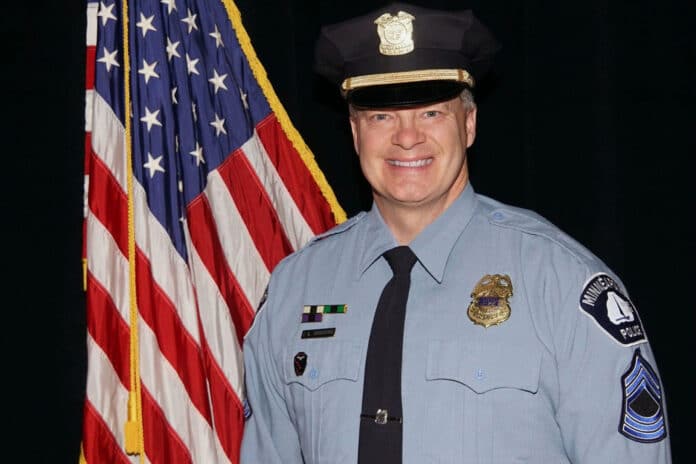
Retired Minneapolis Police Sgt. Joey Sandberg is speaking out against a new law that’s leading many cities and counties to remove school resource officers (SROs) from their local schools just as the new school year begins.
“Pulling SROs from schools is not a good idea,” Sandberg said. “I am so sick and tired of some people bashing police officers working in the schools.”
However, he said he understands why some police agencies are removing SROs from their schools due to the new restrictions, which prohibit SROs from placing students in a prone position or using other physical restraints except in cases where there is a threat of bodily harm or death. Hennepin County Sheriff Dawanna Witt said the new limitations “are incompatible with the sworn duties of a licensed peace officer.” More specifically, Ramsey County Sheriff Bob Fletcher told KSTP that use of the prone restraint is “standard operating procedure for law enforcement.”
“The new law is limiting,” Sandberg said. “As a police officer you have to react quickly. You can’t mentally think through scenarios like, could I go to prison? It’s already ridiculous what cops are getting suspended for.”
Sandberg’s 30-year law enforcement career included seven years as an SRO at Roosevelt High School. “I was born and raised and spent all 31 years in law enforcement working in the third precinct,” he said. The Minneapolis school board voted to remove school resource officers from the district following George Floyd’s death in 2020.
He said there were many challenges being a police officer within the confines of a “liberal school system.” Sandberg recounted an incident where a former principal at Roosevelt High School referred to him as a “necessary evil.”
“Most police officers hold conservative beliefs and it’s hard enough to walk into a liberal environment and try to adapt to their mentality and what they want in the schools, somehow maintain your beliefs in the schools and then cater to the administrators as well,” he said.
He also pushed back on the notion that a police presence in schools creates a “pipeline to prison.”
“Schools also call kids being arrested the ‘pipeline to prison.’ In reality, a kid being arrested is sometimes the best thing that could have happened to the kid. They might be placed in some kind of structured program or referred to social services,” Sandberg said.
Sandberg underscored the challenging backgrounds many Minneapolis students come from, emphasizing the critical support role that SROs play within the school environment.
“Imagine having over half of your school population with dysfunction issues,” he said. “Then placing these kids with the other half of students and then expecting a teacher to teach. These teachers spend more class time dealing with discipline issues more than they do teaching.”
In his view, an SRO’s role transcends mere law enforcement; they also serve as role models, social workers, mentors, and more. Sandberg firmly believes that police officers represent a valuable asset to school communities that should not be dismissed.
“I believe that SROs make a huge positive impact on the kids. Kids came to me and told me things they wouldn’t have told anyone else because they trusted me,” Sandberg said.
He said kids in the schools looked up to SROs and often 10 to 15 students would eat lunch with him and other officers daily. “These kids got so used to us being in the schools, they would call me ‘Joey’ because they were so comfortable with me,” he explained.
But some teachers and staff had a different view. “There were teachers at the school who would not speak to us because we were police. It got to the point where I just felt my whole career was a waste of time,” he said.
Gov. Tim Walz has expressed some openness to calling a special session to fix the new law, but others in his party are questioning whether police belong in schools in the first place.














